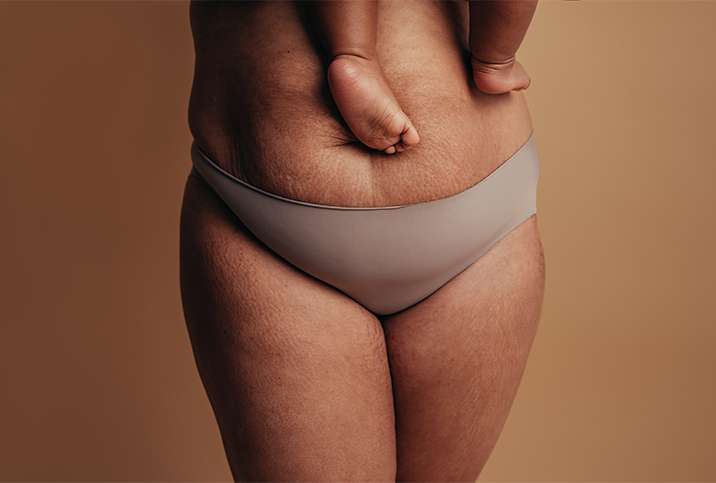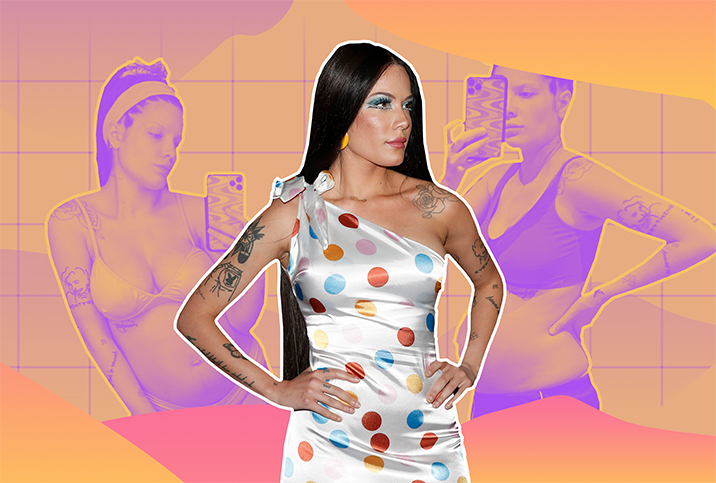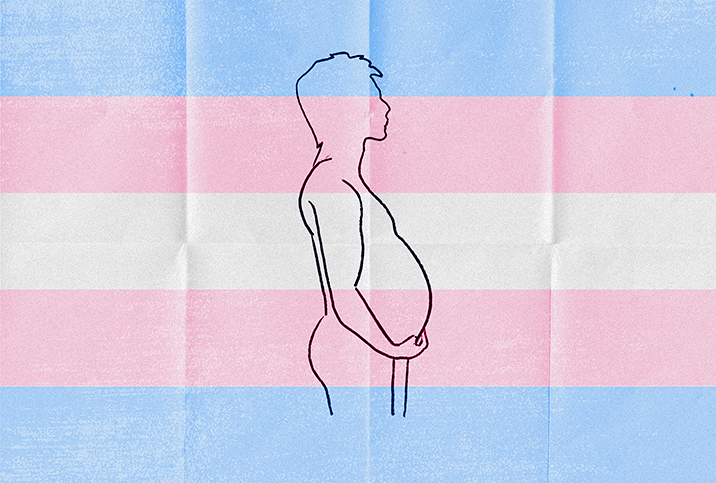Reclaiming the Mom Bod

If you're struggling with your postpartum body, you're not alone. While it's easy to claim acceptance, actually living in a body that doesn't feel like yours is physically, mentally and emotionally taxing. Add to that the sleepless nights and major life changes that come along with caring for a newborn and the postpartum experience can be a serious challenge.
Body image tends to worsen in months one through nine after giving birth, according to a 2009 study published in Women & Health. Notably, the women studied lost 10 pounds on average during this time period, highlighting the complex relationship between body image and body size.
Pregnancy-related physical changes can have a huge impact on body image in the postpartum period.
"Your body goes through a tremendous change during pregnancy and labor, and it can take up to eight weeks following the delivery of your baby to return to normal from a physiological point of view," said Amina Albeyatti, M.B.B.S., a general practitioner specializing in women's and children's health at the Private GP Group in London.
"However, not everything returns to where it once was," Albeyatti added. "Hormones...and the physical demands of pregnancy can not only cause saggy skin around the abdomen but also hemorrhoids, varicose veins, stretch marks, pigmentation of the skin and hair loss."
Predictors of poor postpartum body image
Although postpartum body image struggles can happen to anyone, certain pregnancy-related factors make them more likely to occur.
"A difficult or physically traumatic pregnancy and delivery will impact this greatly," Albeyatti said. "If you've needed an injection that leaves bruises or a C-section which leaves a scar or experienced any other medical issues, this can, of course, impact your body's appearance as well as your mental health and, therefore, your own struggles with these new changes."
Lifestyle changes in the postpartum period also play a role.
"As you are now looking after a young child, plus potentially breastfeeding, your ability to exercise and cook healthy meals, meditate and invest in your skin care will very likely be lacking, which can impact your overall body image," Albeyatti said.
Preexisting issues
"My experience and the data will show you that people who have any type of eating disorder or body dysmorphia, restrictive eating, are definitely at a higher risk for body image disorders," said Serena Rosa, D.N.P., an obstetric and gynecology nurse practitioner and certified lactation counselor in private practice in Boston.
Experiencing poor mental health before or after pregnancy can also worsen body image. Prenatal and postpartum depression are associated with body image dissatisfaction in the postpartum period, according to a 2015 study published in Archives of Women's Mental Health.
Societal pressures
External pressures are impactful, too. Some women may have unrealistic expectations of their postpartum bodies due to socially constructed ideals often reinforced by the media, according to a 2014 meta-review published in BMC Pregnancy and Childbirth.
"We really need to cancel this snap-back culture," Rosa said. "We hear all the time in the media that we need to snap back to this body that we had before, and there's really nothing you are snapping back to."
Similarly, avoiding a focus on body image during pregnancy can help to prevent struggles after giving birth.
"My advice for friends and families is we really need to stop talking about women's bodies when they're pregnant," Rosa said. "There are so many other ways to connect with the pregnant person. How are you feeling? What are you up to? What are your thoughts? What are you doing? What's your mental state? What's your soul state?"
Improving postpartum body image
If you're experiencing postpartum body image struggles, reaching out for help is crucial.
"I would recommend talking to women you trust to not feel isolated and find strength in numbers,” Albeyatti advised. "Speak to your doctor about any medical or mental health issues early to avoid things spiraling."
Friends and family can also be valuable sources of support, for example, by being a gym buddy, watching the children for an hour or sending meal prep recipes, Albeyatti said.
"Everything and anything can help, but the clearer we are about our need or what we can share, the more we can support each other," she said.
"We need our friends or community [to] support our family, to uplift us during this time," Rosa added. "So it's really not about how friends and family can help us with our body image, but how they can help us with the other things that, of course, will trickle down to us feeling stronger and healthier in our bodies."
For some women, the postpartum time can even be a catalyst for positive changes.
"You are going to be in a different body and it's a beautiful thing," Rosa said. "And actually, there's data that shows that once somebody's pregnant, her DNA is forever changed, her DNA will forever have bits and pieces of her child's DNA in it. This is an opportunity to build a stronger, healthier, more evolved body."
Above all, being kind and gentle with yourself is essential.
"Focus on you first and the rest will follow," Albeyatti said. "If anyone else you knew had a medical issue for nine months and needed a couple of nights in the hospital, you'd be more patient and understanding with them."


















